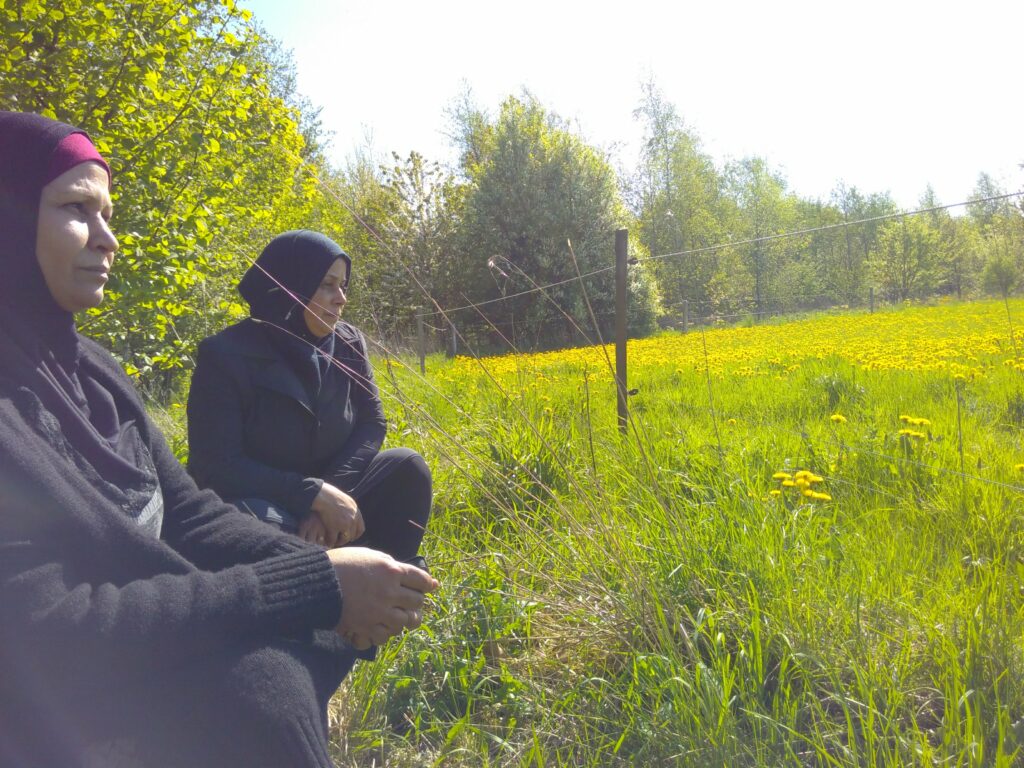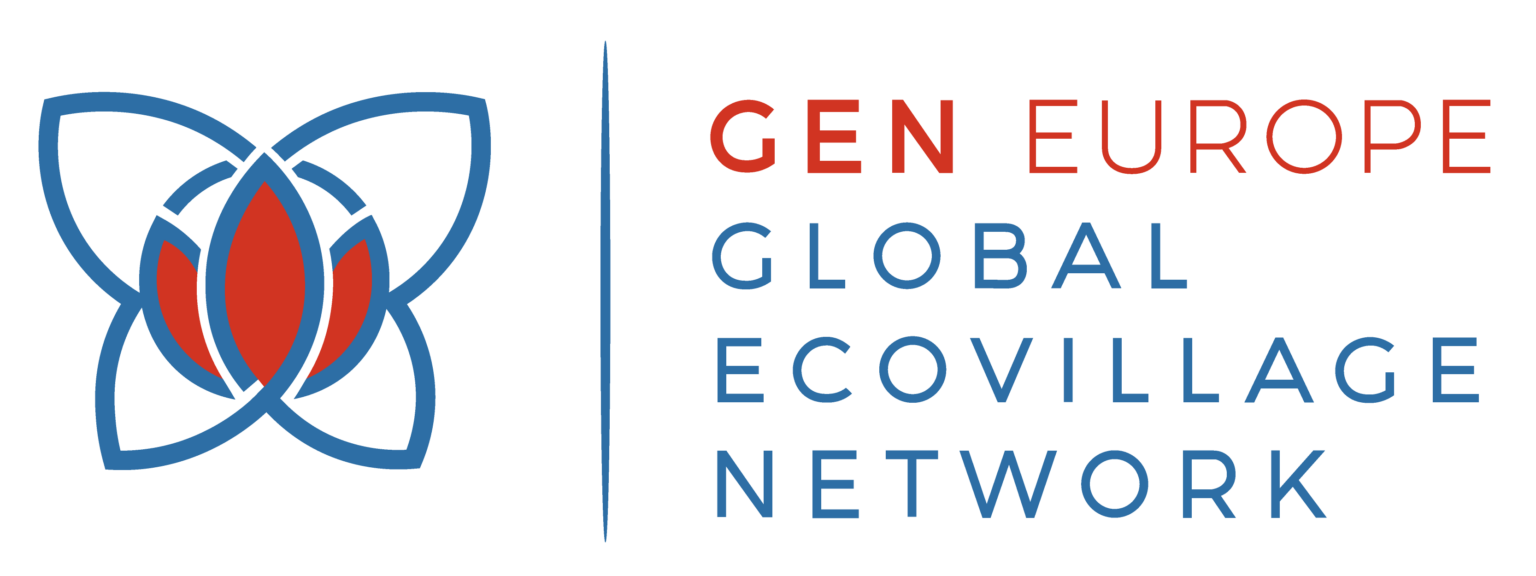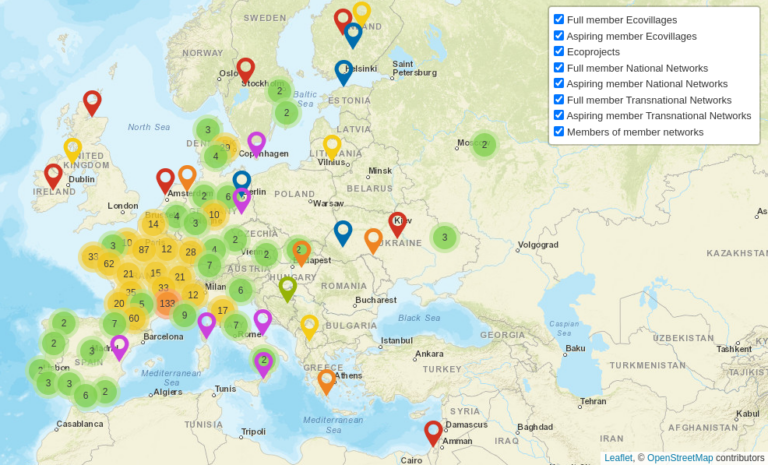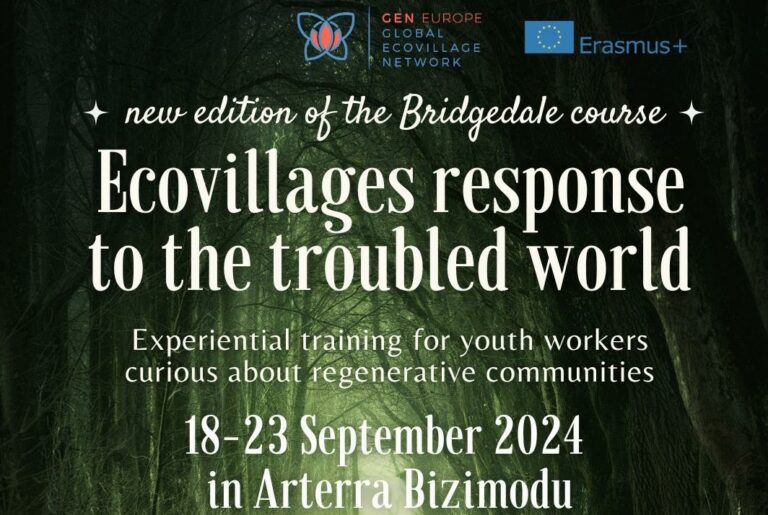Growing Roots Together
by Sasja Iza Christensen, New Roots
During a number of years, in the ecovillage of Hallingelille, situated in the middle of Zealand in Denmark, traumatized refugees have been given the opportunity to heal and improve their lives in Denmark. A handbook on how is now written and available.
A nature- and community-based approach to rehabilitation has been developed aiming at supporting some of the most vulnerable people and help them to be part of a community.
Behind the project are nature therapist and Bachelor in Nutrition and Health, Lotta Wilson Bruun and trauma- and psychotherapist Sasja Iza Christensen. We founded the social organisation New Roots with the intention of enhancing vulnerable refugees’ connection to nature and it documented beneficial effects, and welcoming them in a warm hearted community, hoping that the trauma symptoms would step in the background and the resources in the foreground.

We developed a program of 30-32 weeks called GROW, in which the participants would come 2 days per week for nature-based activities, sessions and conversations, physical exercises and so on. As a part of the program each participant was given the opportunity of cultivating their own lot in order to grow vegetables for their families. Eco-therapeutic exercises and activities supported the participants in managing their daily stress, and through the course of the program they built their resources and also got to know the residents of Hallingelille.
The method builds on three fundamental relationships:
1) Connection to nature
Nature as a basic condition and requirement for humankind’s existence. Nature as a framework for both danger and security. Nature as accessible to all and full of resources. Nature as a way to relax the nervous system and as a source of meaning.
2) Connection to others
The forming of relationships as our first survival mechanism and requirement for well-being. Community as affiliation, protection and strength. Community as a basic pillar for the individual’s identity, role and purpose. Positive communities as a provider of a calmer nervous system.
3) Connection to oneself
Contact with one’s own body, resources, life history, range of emotions, values, needs and future goals.
During 2 years GROW was subject to a research project in cooperation with 5 municipalities, The University of Copenhagen and Center of Competence of Transcultural Psychiatry. One research article has been published and another one is on its way. The results show that the participating refugees through this approach experienced a greater sense of safety and meaning in life, a greater experience of belonging and also increased their affiliation to the labour market.
We hope this handbook may inspire others who wish to help vulnerable people to be part of a community, to rebuild a safe foundation through nature, and enhance the connection with oneself, between people and the connection to our environment.
The book is available for free download from the New Roots website and can also be ordered in its physical form for 200 DKR + shipping. It is available both in Danish and in English





